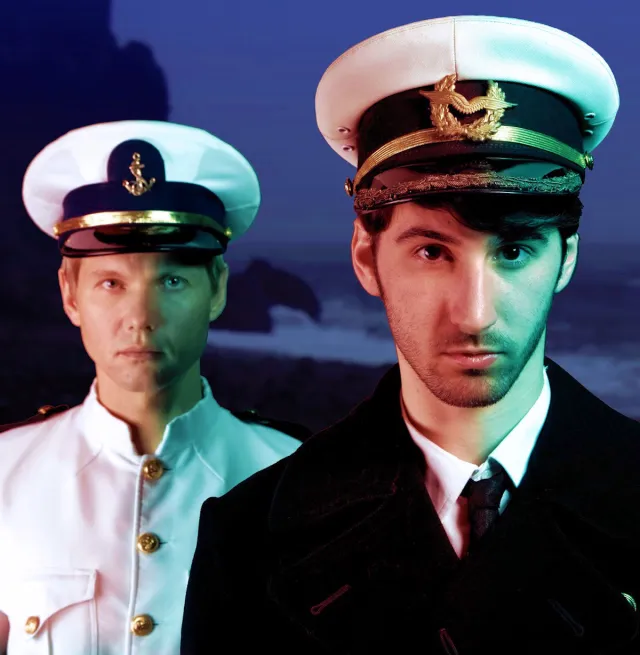If you were to take the five biggest EDM artists in the world right now and place them side by side, would you be able to tell their bodies of work apart? The Nylon Admirals don’t seem to think so if their website is anything to go off of. “Over the past 20 years, electronic music has become homogenous and repetitive, […] leaving us with an ocean of loop-based dance tracks confined to a plethora of rigid sub-genres, and a focus on production values over musicality. A sea of polished turds.” It makes total sense for a band like The Nylon Admirals to feel this way, of course, as their output is comprised of some of the most incendiary, unplaceable sounds and melodies of the last decade — their recently released sophomore record Handbags delivers on the inflammatory talk they love to throw out — and walks the walk without so much as a minor stumble. Handbags is an impressive deconstruction of what it means to be the sophomore slump and a further look into the meaning behind the labels we place on music.
Handbags is a nine-track album just shy of an hour that somehow crams in a thirteen-minute mega-finale, instrumental dance-pop, and the guy who used to narrate trailers on top of countless samples of old movies and TV. The entire time Handbags is playing, there’s no telling what’s in store for the next track, and it doubles down on this mentality every single time. “In a World” segueing into “Butcher’s Hook” feels like the television episode’s theme song giving way to the greater theme of the narrative at hand, and the uptick in danceability invited listeners into its world without hesitation.
“Guillotine” feels more Y2K in its appearance, but when the synth joins at about one and a half minutes in, things go full 1980s. The crisp synth is enough to make the mildest audiophile ascend. “Morgunsár” is a little bit more Bjork than anything else on the album thus far with its juggling of dreamlike, haunting vocals and up-tempo drum beat. Each track within Handbags wears its heart on its sleeve in different ways, and the result is always worth it.
“Septillions” wisely pivots to opening with a bit of guitar before going interdimensional with its synth use; even though the synth is familiar, it feels used in an entirely new way against vocal samples and piano, with thrumming bass charging up across the song’s runtime. The presence of piano allows this track to ultimately be a favorite. “Sono Binario” lends itself to being the most cinematic song on the album yet as it channels Howard Glass’ Koyaanisqatsi score through operatic singing before shifting into sounds you’d hear on a Gameboy Color soundtrack.
It’s another standout in the sense that it completely transforms the album with its ingenious musical plot twist. “Green Boots” and “What Dreams May Come” feel like less direct efforts following the two songs that came before, but they’re still good, and more importantly the necessary propulsion to get the album to its finale in “Orabidoo” — ending your second album on a cover track could seem cheap if the song you were covering wasn’t thirteen minutes long and involved beyond belief. The attempt alone is admirable, but the result itself? Magical. There’s nothing on shelves in electronic music like The Nylon Admirals and their crown jewel: the album Handbags.
Chadwick Easton

